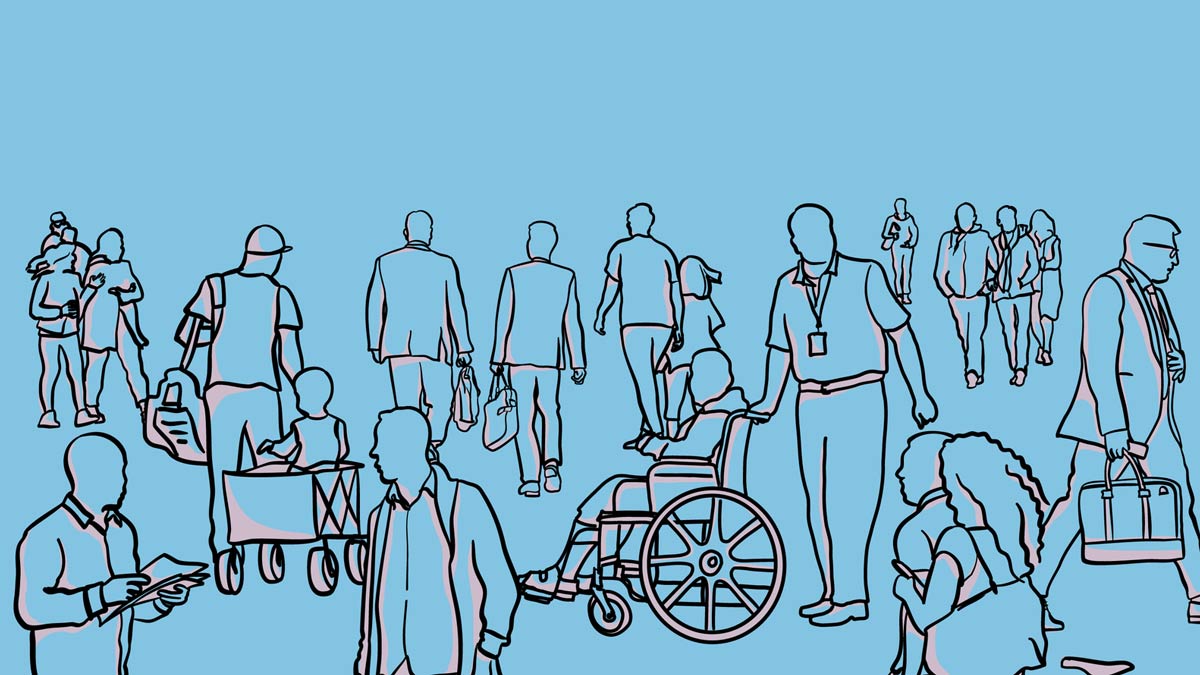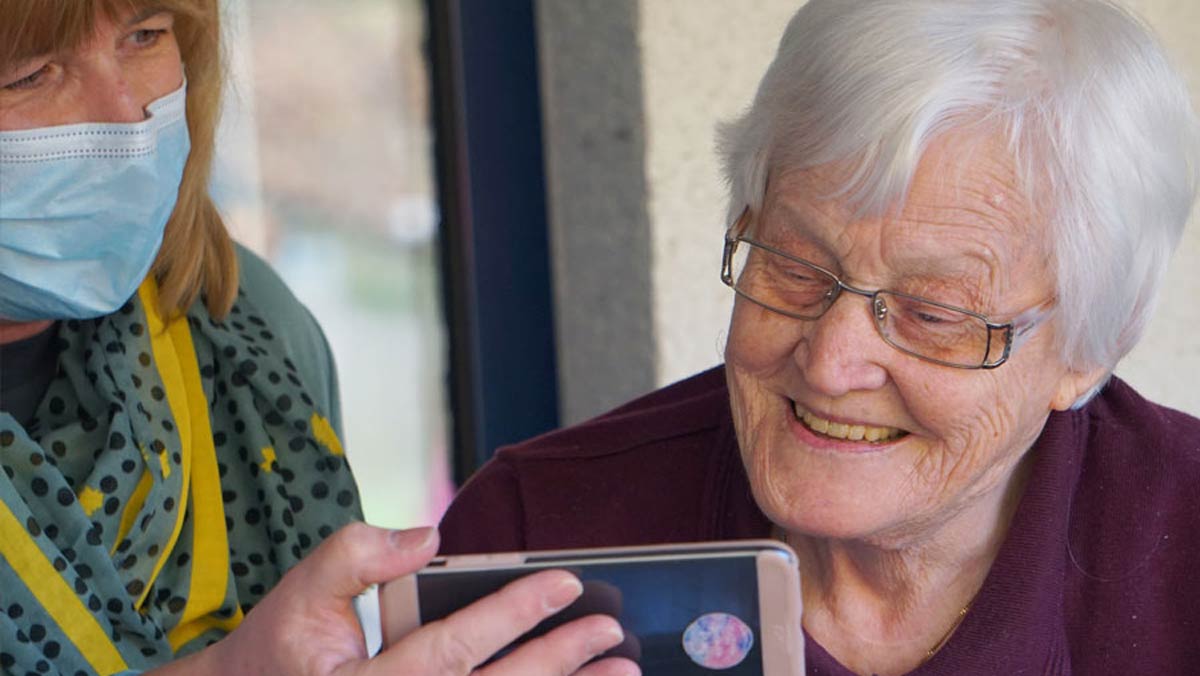Aging Populations Research at Toronto Metropolitan University

The average age of Canadians and people worldwide is projected to increase in the coming decades, representing a major demographic shift. To support aging populations, TMU researchers engage and work with communities, health-care providers and policymakers to better understand the societal impacts of this shift.
 (external link, opens in new window)
(external link, opens in new window)
Canada’s only think tank dedicated to policy solutions for an aging population, working at the intersections of health care, financial security and social well-being.
Engaging with communities and health-care providers to support our aging population.
TMU is also a member of the Canadian Frailty Network (external link, opens in new window) , Canada’s sole research network devoted to improving care for older Canadians living with frailty and supporting their families and caregivers.
Research Highlights
Alexandra Fiocco (Psychology) studies how stress and lifestyle behaviours affect cognitive functions in older adults and how measures such as mindfulness meditation can facilitate aging well.
Molly Henry (Psychology) studies the synchrony between brain rhythms and environmental rhythms, including how the brain processes auditory input as we age.
April Khademi (Electrical, Computer, and Biomedical Engineering) measures neurodegeneration in large-scale multi-centre MRI datasets, leading to improved diagnostic accuracy and understanding of diseases such as dementia.
M. Natasha Rajah (Psychology) studies the cognitive neuroscience of aging, memory and dementia prevention to learn how various biological and sociocultural determinants of health and lifestyle contribute to brain health in racially and culturally diverse older adults.
Frank Russo (Psychology) investigates the potential for music-based therapy to mitigate agitation and promote communication and well-being in people living with age-related hearing loss, Parkinson's, Aphasia related to stroke and/or dementia.
Julia Spaniol (Canada Research Chair in Cognitive Aging) uses behavioural and neuroscience techniques to study how motivation and emotion affect cognitive processes in younger and older adults.
Lixia Yang (Psychology) researches the aging brain’s cognitive plasticity and aging-related differences in memory, attention and moderation of emotions and stress.
Sue Bookey-Bassett (Nursing) explores socio-cultural factors related to resident safety in long-term care homes, as well as nurses’ experiences caring for young caregivers of older relatives with dementia.
Sepali Guruge (Nursing) develops interventions to reduce social isolation and promote connectedness among older immigrants in Canada.
Janet Lum (Politics and Public Administration) studies integrated health, social care, and home and community care, focusing on diverse populations’ living and aging experiences.
Kristine Newman (Nursing) creates tools and best practices that support aging and vulnerable populations such as persons with dementia and their caregivers.
James Tiessen (Business Management) studies comparative healthcare policy and management in long-term care, focusing on Canadian and Japanese health-care models of community care.
Sharon Wong (Nutrition) assesses the effectiveness of nutrition interventions for community-dwelling older adults and explores how older adults seek health information.
Pnina Alon-Shenker (Law and Business) studies the legal dimensions of age discrimination in the workplace, such as the duty to accommodate senior workers, mandatory retirement and cost-based defence claims.
Kim Bates (Business Management) studies corporate governance and various topics at the intersection of business and society, including the impact of an aging population on organizations and society.
Samantha Biglieri (Urban and Regional Planning) examines the social and built care networks of people living with dementia, their families and caregivers to support dementia-inclusive communities at all scales.
Bonnie-Jeanne MacDonald (National Institute on Ageing) works to improve retirement financial security for Canadians through industry innovations and government solutions.
Victor Perez-Amado (Urban and Regional Planning) explores the relationships between territorial landscapes, urban design and architecture, including housing to age in place for 2SLGBTQI+ seniors.
Samir Sinha (National Institute on Ageing) led the development of the Ontario Seniors Strategy and has developed new health and social care models to support healthy aging.
Lu Wang (Geography and Environmental Studies) examines transnational health-care practices and health-care access among older immigrants in Canada using Geographic Information Systems, spatial analysis and statistical modelling.
Linying Dong (Information Technology Management) focuses on emerging technologies and information governance in the Canadian health-care system and sustainable elderly care.
Deborah Fels (Information Technology Management) is developing MyHealthMyRecord for people living with chronic pain to digitally document their pain management successes, challenges and ongoing efforts through video recordings.
Alexander Ferworn (Computer Sciences) develops ambient assisted living devices that improve safety and quality of life for older persons living at home.


